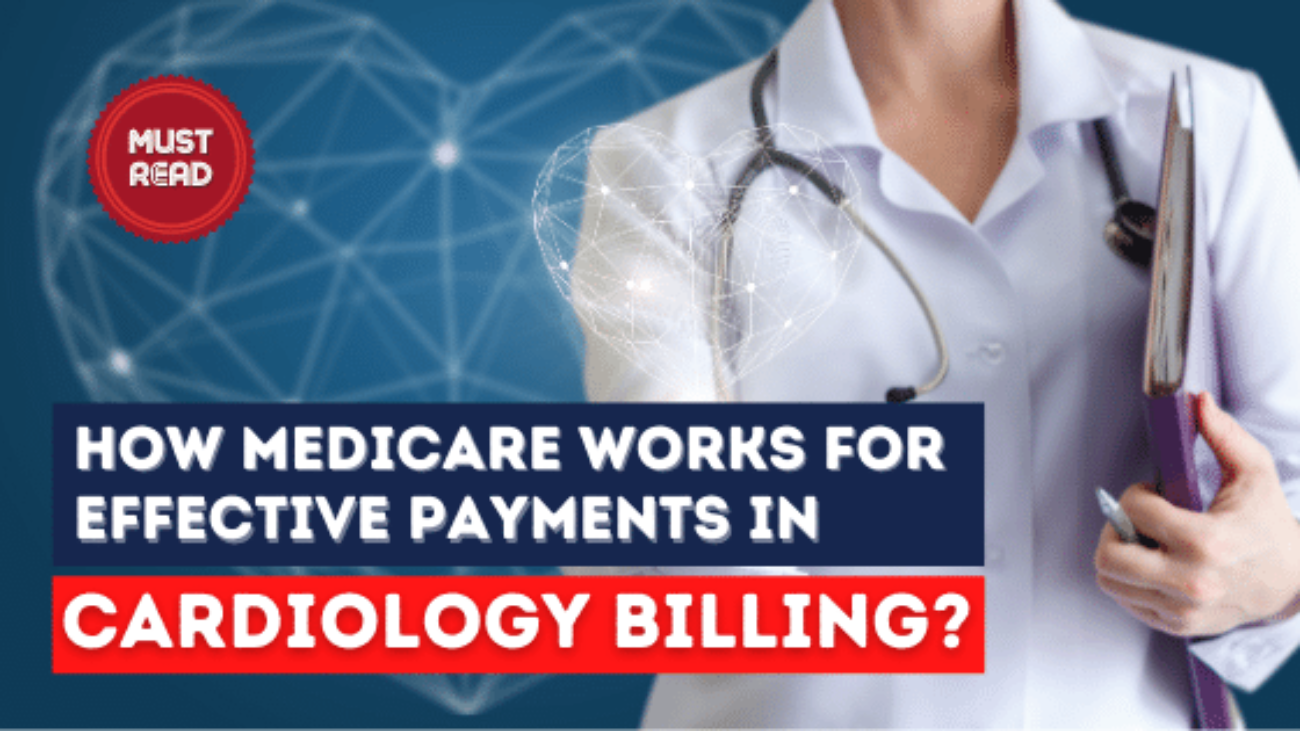If you have better understanding on the subject, it’s sure that cardiology billing increases revenue payments to the peak. When it comes to specialty coding and billing practices, it’s very essential to have deeper understanding and knowledge on the subject. Effective cardiology billing and coding requires regular updates on changes and coding revisions.
Healthcare professionals those who perform medical coding and billing confronts challenges with constant evolving technology and treatment paired along with cardiology coding regulations and tremendous changes in cardiology billing. Usually in a cardiology billing setting, charge entry team must be capable to read and transcript surgical notes.
The above can be an integral element for profitable and effective cardiology billing processes. Healthcare professionals must have specialized team of expertise to perform proper and accurate billing procedures those are enabled and can be performed by cardiologists. In a cardiology billing set up, the team should read and transcript the medical information or physician’s operative notes.
Medicare provides the insurance coverage for cardiovascular screening blood tests in order to detect the disease at an early stage. It also includes the abnormalities involved with a risk of heart disease or heart stroke. The screening tests that are covered usually in Medicare:
- Complete cholesterol test
- Cholesterol test for high density Lipoproteins
- Triglycerides test
It’s evident to apply the beneficiary as soon as possible within 12 hours prior to any test to be taken or performed.
Medicare coverage for Cardiology Billing:
- As known early, Medicare generously provides the coverage of cardiovascular screening for blood tests including all asymptomatic beneficiaries for every five years.
- It also covers cardiovascular screening for blood tests when only ordered by healthcare professionals or physicians who are qualified and treats the beneficiary without apparent signs as well as symptoms for the reason to detect cardiovascular disease at early stage.
- The CPT codes used to bill Medicare covered cardiovascular screening blood tests are :
- 80061: liquid panel that includes CPT codes 82465, 83718 and 84478.
- CPT 82465 – Total cholesterol, serum or whole blood
- CPT 83718 – HDL cholesterol
- CPT 84478 – Triglycerides
- While reporting all these tests together, a separate CPT code must be used 80061.
- While billing monitoring cardiac toxicity, the following ICD-10-CM diagnosis codes should be reported. Those include:
- Z08 Encounter for follow-up examination post complete treatment for malignant neoplasm
- 818: Encounter for other pre-procedural examination
- 11: Encounter for antineoplastic chemotherapy
Medicare Billing and Fees for Cardiology:
- Fees reductions became normal in cardiology billing from last few years.
- The average Medicare fees of over 1% have been increased whereas Medicare fees for cardiology billing have been decreased by 2%.
- There are few changes in echo services such as Doppler and color flow as well as follow up on implanted devices and external devices.
- The above phenomenon results in cardiology billing errors and decrease in revenue payments.
- Incase if the billing team is unaware of certain Medicare fee modifications, it’s evident to face considerable negative fall of revenue reimbursements.
Medicare and Coordination of Benefits in Cardiology billing:
- Outsourcing companies usually understand the intricacies of managing especially cardiology billing and coding for Medicare patients with multiple coverage services.
- A team with extensive support and knowledge on billing and coding ensures to prevent problems with claim submission as well as reimbursements.
- Coordination of benefits are definitely required for patients who underwent procedures and require more complex billing process.
Understanding Modifiers for Cardiology billing:
- Cardiology billing and coding is very complicated and needs highest level of capacity and experience to code and bill accurately and appropriately with correct modifiers.
- Specifics of cardiology billing include medical necessity verification, component coding, which sharpens the level of billing and coding efficiency.
- The healthcare professionals codes for E/M visit and cardiovascular screening blood test requires a modifier which should be added to the E/M visit in order to indicate and specify that E/M was performed on the same day of the procedure or services rendered.
- The uses of modifiers are they halt bundling of E/M visit adding to the procedure. The outsourcing companies work accordingly to aid in error identification and correct them using matching modifiers to maximize the revenue payments.
- The Medicare Code Editor is designed to detect and report billing and coding errors in the claims data. The ICD-10 Code Edits are applicable to this code:
- Unacceptable principal diagnosis – The selected codes describe a situation which influences patient health status but not present illness or injury, or codes that are not specific manifestations but can be due to an underlying cause. These codes are considered unacceptable under principal diagnosis.
- Medicare has chosen to further refine this statement by issuing a coverage policy that spells out appropriate indications for various services.
Reasons for Medicare Denials in Cardiology billing:
- For Cardiology billing, patients who are not eligible for Medicare medical-necessity criteria, patients who do not meet cardiovascular procedure criteria, or those who do not have a cardiovascular illness or disease and therefore are not eligible for Medicare payment.
- Patients are admitted to a cardiology unit because no beds are available in the hospital for particular specialty.
- In few cases patient’s details given in pre authorization may differ from the actual information. The locations may be varied and certain causes won’t repay for the procedures.
Hope you got the information on Medicare for Cardiology billing. For more suggestions, please comment below, we will definitely consider them if relevant. For more queries and updates on healthcare, please subscribe to our blog.
How Medicare Works for Effective Payments in Cardiology Billing?




